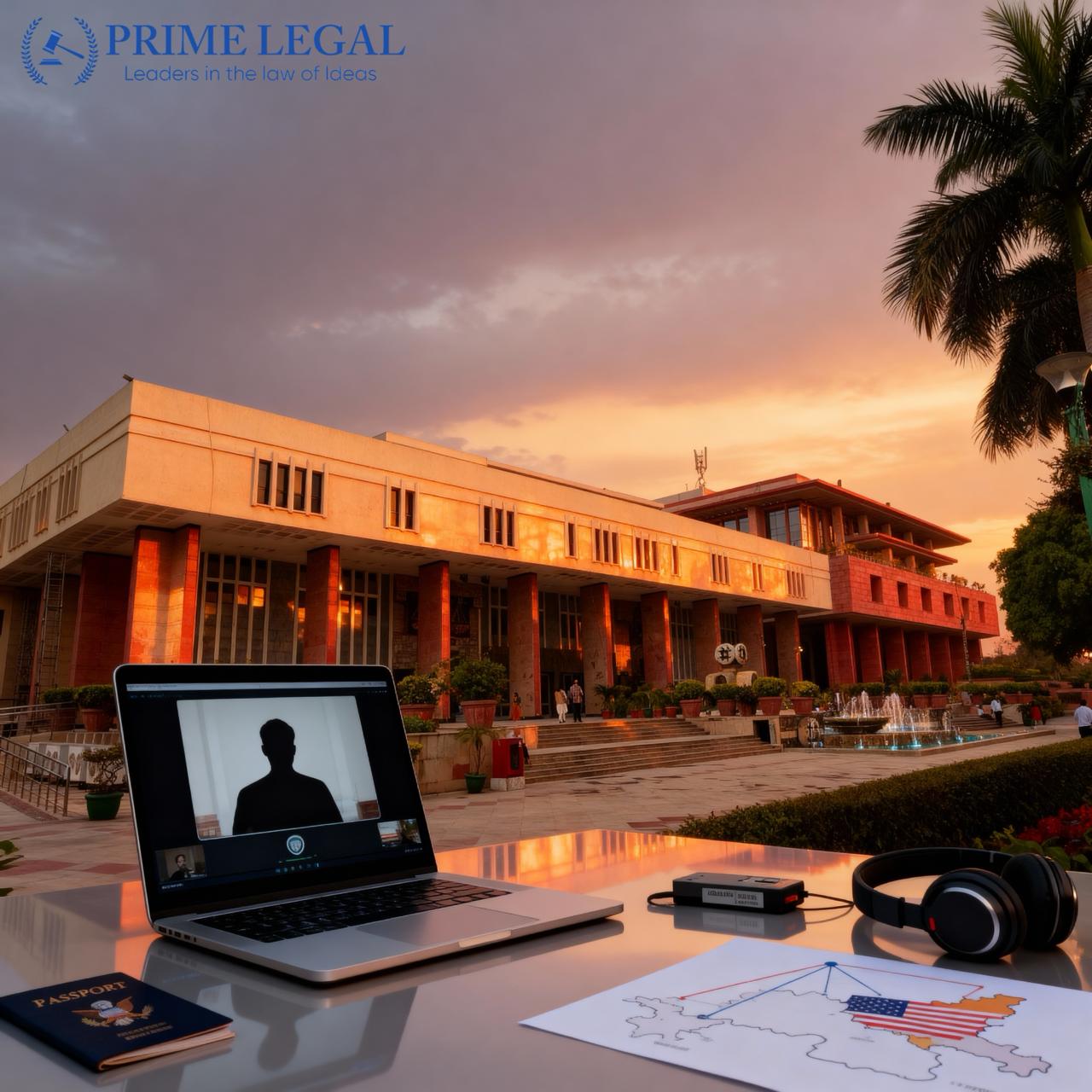INTRODUCTION AND BACKGROUND:
The case revolves around judiciary’s role in ensuring fair and safe trial proceeding, wherein the Delhi High Court allowed a criminal proceeding to be recorded via Video Conferencing, for the witness who is based in the United States registered under Official Secrets Act (OSA), 2013. The case was registered in 2012, by Ministry of Defense against arms dealer named, Abhishek Sharma and his Romanian wife Anca Maria Neacsu who were accused of obtaining and transferring classified defense information which was unauthorized. The witness around whom the article revolves, is C. Edmond Allen, who provided certain material information via a letter enclosing certain Defense matters, related to Defense Ministry, which were later claimed to be secretly and in an unauthorized way communicated.
The Trial Court, refused to entertain the Central Bureau Investigation’s request of examining the witness (Allen) , through video conferencing. Aggrieved by the Trial Court’s verdict, the CBI, filed a petition in the High Court of Delhi, enclosing that the presence of the witness in India, was not possible due to his physical conditions and his security concerns.
KEY POINTS:
The Delhi High Court, though recognized the concern of the Trial Court, that there remains an apprehension of the potential leakage of the testimony, but it should not be completely prohibited. The Court recognized that Official Secrets Act do not completely ban the usage of Video Conferencing, but proper guidelines and safeguards to maintain the confidentiality are to be ensured to maintain the fairness of trial.
The witness, Allen, was 79-year-old individual along with serious cardiac and orthopedic health conditions. He was also advised not to travel through long haul flights as well as he was going through serious threats allegedly from the respondents. Henceforth, video conferencing was the only viable mode for the examination of his testimony.
The Court also tried to balance the rights of the accused, with the need to progress the trial, the Court relaxed the need to the consent of the accused of video conference. It directed that the Video Conference to be taken place from the Indian Consultate in New York under strict safeguards, which was in accordance with the Delhi High Court Video Conferencing Rules, 2020.
RECENT DEVELOPMENTS:
Post- Pandemic, the Supreme Courts and High Courts, try to incline towards, Video Conferencing and only witness testimonies. The Judicial Standards have now inclined towards, fair witness trials along with technological solutions to ensure feasibility, along with upholding the judicial standards and legalities. The Video Conferencing, 2020, inclines towards this judgement, and the technological upgradation for legal solutions, while maintaining fair trial and national security safeguards.
CONCLUSION:
The High Court, reaffirmed that, while doing justice nothing should come in between that. The trials for the cases involving Official Secrets Act, must not be stagnate due to health or logistical concerns, but if alternatives exist, that must be opted, if they are secured. The court reaffirmed that, technological advancement should be taken into consideration along with judicial pronouncement while doing justice, and hence timely continuation of proceedings concerning security concerns are followed.
“PRIME LEGAL is a full-service law firm that has won a National Award and has more than 20 years of experience in an array of sectors and practice areas. Prime legal falls into the category of best law firm, best lawyer, best family lawyer, best divorce lawyer, best divorce law firm, best criminal lawyer, best criminal law firm, best consumer lawyer, best civil lawyer.”
Written By- Soumita Chakraborty


